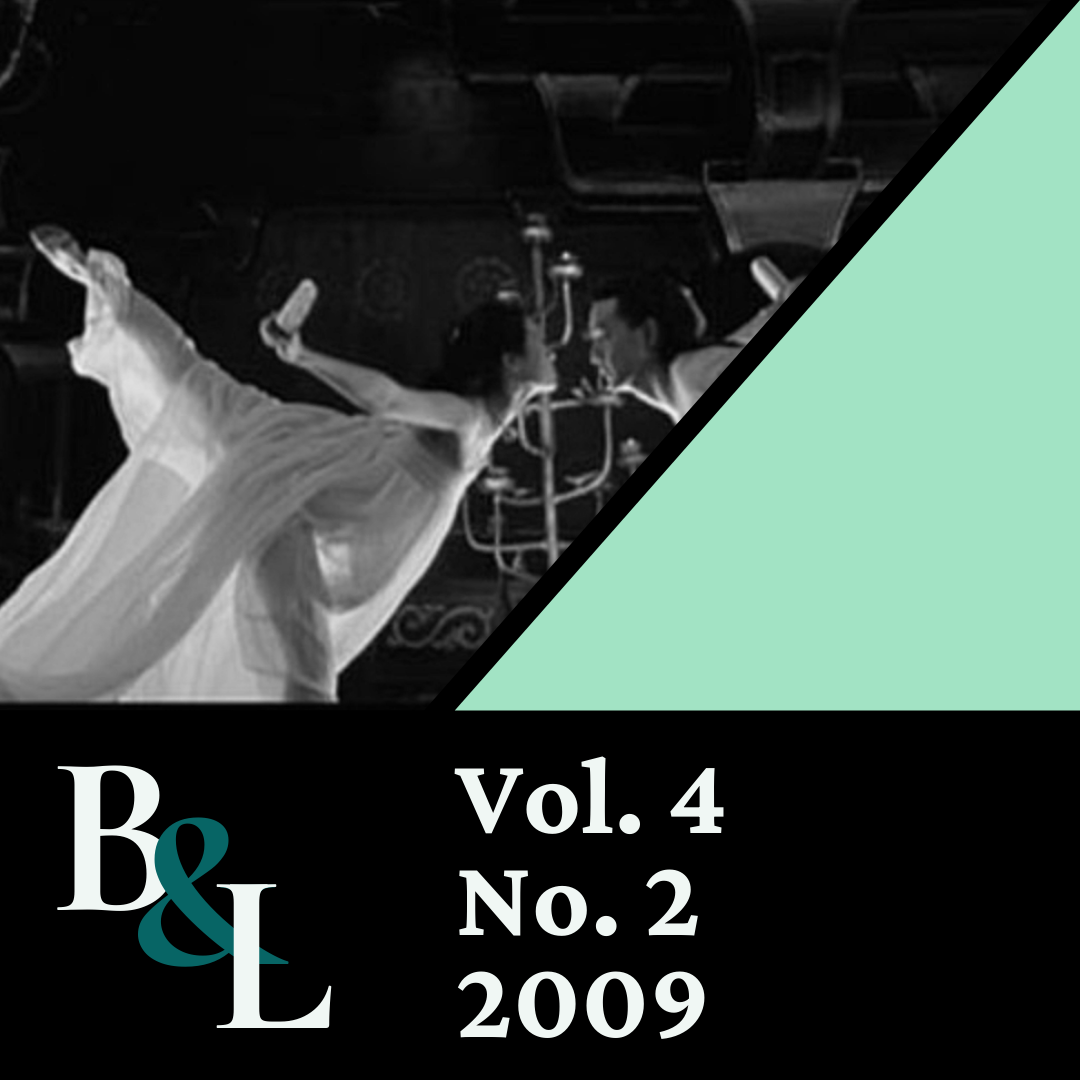The Banquet as Cinematic Romance
Abstract
Cluster: Asian Shakespeares on Screen: Two Films in Perspective
Edited by Alexa Huang
In Feng Xiaogang's version of Hamlet, The Banquet, the film's music, its slow motion duels, its beautifully photographed landscapes and horses, the weight given to Qing Nü's dreams and her songs, the heightened theme of adultery, and the odd ending suggest that the film is not a tragedy, but a romance. Romance, according to Fredric Jameson, is the genre that reveals the social or historical contradictions that produce the illusion of good and evil. In fact, Feng is following the historical shift away from the old notion of Hamlet as a play about revenge, and we can see this shift towards romance by looking at the different interpretations of Hamlet from the Renaissance to the modern era. In the filmography of Hamlet, the displacement of tragedy by romance is most obvious in Rosencrantz and Guildenstern Are Dead. This shift in interpretation and our understanding of the romance genre make us ask what social contradictions The Banquet tries to resolve.


